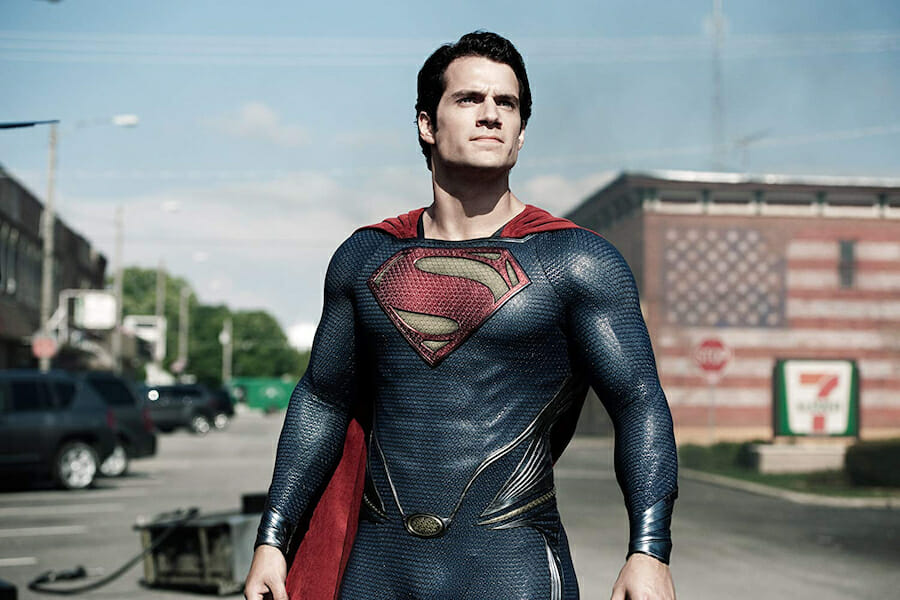
Music for a ‘Man of Steel’
With his score for Zack Snyder’s Man of Steel (2013), Hans Zimmer has composed a foreboding, if monochromatic, anthem to destruction. Long, ponderous pauses and rising two-note structures are interrupted by repetitive, cacophonous action cues that sound like leftover cuts from The Dark Knight (2008). Where is Superman in this music? Where are the themes for Zod, Lois, Smallville, and Krypton? Minimalism may be en vogue in Hollywood orchestral music, but it needs teeth to be listenable.
Granted, Zack Snyder aimed for a grittier, more realistic version of Superman in Man of Steel. And Zimmer delivered. But Zimmer should have also recognized genuine feats of superhuman heroism through his music—beyond simply hitting the drums harder. The avoidance of melody in favor of atmospheric, rhythmic layering can prevent any memorability when taken to the extreme.
In Man of Steel, the music for Krypton sounds nearly identical to the music for Smallville, America—although the settings are literally on separate planets. Even atmospheric scoring like Zimmer’s requires lyricism to connect to the audience.
For his action scores, especially of the superhero variety, Zimmer’s default style is threefold: ostinato on strings, whole notes on horns, and thump-thump on the bass drums. This style dominates the action music for Christopher Nolan’s Batman trilogy, Inception (2010), and The Pirates of the Caribbean film series.
At its best, it suggests a relentless energy and a dark tint to the ambience. At its worst, it is plodding and emotionless. It fits primitive subjects and machines well—as in Gladiator (2000) and Crimson Tide (1995).
Despite the incongruence of so many of his scores with their films, Zimmer’s status as a Hollywood composer continues to rise. Through his students at Remote Control Productions in Santa Monica, California, Zimmer has spread his signature cues across the comic book universe and beyond. Remote Control artists have scored Transformers (2007), Iron Man (2008), and Sherlock Holmes (2009), among other hits.
Their scores have saturated the Hollywood music community. A touch of Remote Control can be heard in Brian Tyler’s music for Iron Man 3 (2013). Even Patrick Doyle, a composer best known for sweeping and complex melodic flourishes, found a place for Zimmer-like drum smashing and rhythmic looping in his music for Thor (2011).
Much of Zimmer’s success is no doubt due to his easily replicable style. Nearly all great film music composers are known as great stylists. Danny Elfman, John Williams, and Basil Poledouris—the masters all have their trademarks that can be detected in a few bars of music. But their best works are also triumphs of discretion. In John Williams’ iconic score for Superman (1978), amid the peaks of brassy heroism there are valleys of longing and loss. The music for Jonathan Kent’s death and Clark Kent’s goodbye to his mother are both respectful to Clark’s family and cognizant of the ambition and ideals stirring in his young heart. In the tracks called “Death of Jonathan Kent” and “Leaving Home,” there is a conflict at work, not just a two-note gesture. The moments of quiet raise anticipation for the epic Superman fanfare that is typical of Williams.
In the world of electric guitar, oft-imitated stylist Eddie Van Halen has diversified over time while sustaining his classic sound. For the soundtrack to the movie Twister (1996), Van Halen tailored his guitar pyrotechnics and keyboard skills to the tone of the film, producing an ingenious instrumental called “Respect the Wind.” The song, co-authored by Alex and Eddie Van Halen, was nominated for a Grammy for Best Rock Instrumental in 1997. In the piece, whammy bar dive bombs and string bends imitate the howl of the wind. Ascending flurries of notes are resolved by a harsh descending melody. The descending melody ultimately closes the piece along with high-pitched harmonics that resemble a gusting wind. “Respect the Wind” is a strong tonic to the party-like-hell anthems of the full Van Halen band, yet it features all of Eddie’s trademark techniques.
If Zimmer continues to score films with a one-size-fits-all approach, perhaps he should stick to stories complemented by his style—like Gladiator and Inception. If it’s true that he required considerable convincing to take on Man of Steel as a project, maybe he should listen to his gut more often. If there is any comic that requires a sun-soaked disposition and powerful themes of nobility, it is Superman. In the 1978 Superman, Jor-El, played by Marlon Brando, tells his son to guide humanity: “They can be a great people, Kal-El, they wish to be. They only lack the light to show the way.”
Even in the world of Batman, there is a role for light. The dark heroism of Danny Elfman’s popular score to Tim Burton’s Batman (1989) proved that. Superman film music need not always reflect the mores of John Williams, but it should always light the imagination of the listener. Man of Steel’s score is a better fit for the villain who killed Superman in the comics—Doomsday.
